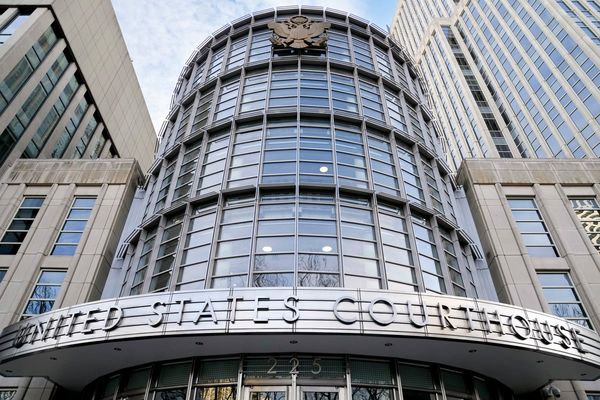
Pro-Palestine protesters and University of Melbourne administrators remain in a deadlock despite a warning that police could be called to enter the campus at any time.
As tensions simmer between university administrations and student activists across the nation, those camped inside the Arts West building have defied the University of Melbourne’s demands and the threat of police intervention.
Monash University on Friday said the student encampment on its Clayton campus, in Melbourne’s south-east, had ended, while the University of Queensland has signalled it aims for its pro-Palestine camps to end.
After a meeting held between a handful of University of Melbourne student protesters and two university executives on Friday afternoon, the activists said no resolution was reached. The protesters said their encampment in the Arts West building would continue until their calls for the university to disclose and divest their ties to weapons manufacturers were met.
Dana Alshaer, from the University of Melbourne for Palestine group, was among the group that met with the acting provost, Prof Pip Nicholson, and the deputy vice-chancellor for research, Prof Mark Cassidy.
Alshaer said the protesters had attempted to have an “open dialogue” but the university’s executives had not met their key demands.
“We have been explicitly told that they will not divest and cut ties with weapon manufacturers. They have made it clear that Australia’s national defence interests are the interests of the university, not the human rights of people in Gaza,” she said.
The protesters did not rule out that “external actors” were involved in the encampment inside the building.
Gemma O’Toole, a student involved in the encampment, said that if police did intervene “everyone has the ability, the autonomy – they can decide what they want to do”.
Alshaer said it would be the “university’s decision” if they wanted to replicate the scenes where US police in riot gear stormed Columbia University to break up a pro-Palestine encampment.
A group of students has camped inside the building since Wednesday, prompting the university on Thursday to say protesters may face police action and could be disciplined after they “crossed a line”.
The university has not publicly provided a deadline for when it could escalate a crackdown and Victoria police confirmed they have not been requested to intervene.
In a statement on Friday, the university said it was “deeply concerned by this occupation” and warned that police “may choose to attend campus at any time”.
“This occupation presents a significant safety risk to our students and staff members, and has resulted in damage to university property,” the spokesperson said.
The spokesperson said since Wednesday more than 8,300 students had been affected by the disruption and 247 classes rescheduled.
Anthony Albanese urged protesters on university campuses to be respectful and not attack others.
“There is no place for some of the disrespectful ways in which some of these activities are happening – whether it be in some university campuses, or indeed, outside my electorate office,” the prime minister said.
In a video released on Thursday afternoon, the University of Melbourne’s deputy vice-chancellor, Prof Michael Wesley, said management’s patience was “now at an end”.
“If … [the university’s] codes of conduct are contravened, as they have been now, the people who are carrying them out will face disciplinary action and police action, if necessary,” Wesley said.
Victoria police said it was working with the university in response to the protests.
At Deakin University in Melbourne, Deakin Students for Palestine said an on-campus encampment would hold a “closing rally” next Wednesday, after defying a second request to disband it. It vowed further protests next semester. A spokesperson for Monash University said its encampment organisers notified the university on Friday that they “planned to pack up”.
The University of Queensland’s chancellor, Peter Varghese, on Friday said it “cannot allow the encampments to continue indefinitely” on its grounds. Its vice-chancellor, Prof Deborah Terry, said the “objective is to discontinue the camps as soon as possible” and the university was “continuing to engage with nominated protest representatives, to agree a peaceful resolution to the current camp arrangements”.
Protesters at the University of Sydney have set up dozens of tents and were considering moving their protest indoors. The Sydney students held a forum on Friday and invited the vice-chancellor, Mark Scott, but he did not attend.
A University of Sydney spokesperson said it had offered to meet encampment organisers in a “private and neutral place” so discussions could take place without interruptions.
The Australian National University has directed at least three more protesters to vacate the encampment there, after advising seven students to move on by Friday evening or risk breaching the university’s code of conduct.
Nick Reich, one of the initial group of seven and a member of Socialist Alternative, said the encampment would stay but students facing directions could stop camping overnight.
“Most of us won’t sleep tonight, but all the tents and structures will stay up,” he said.
An ANU spokesperson said the university was still “giving students the opportunity to follow these directions”.
– with AAP







